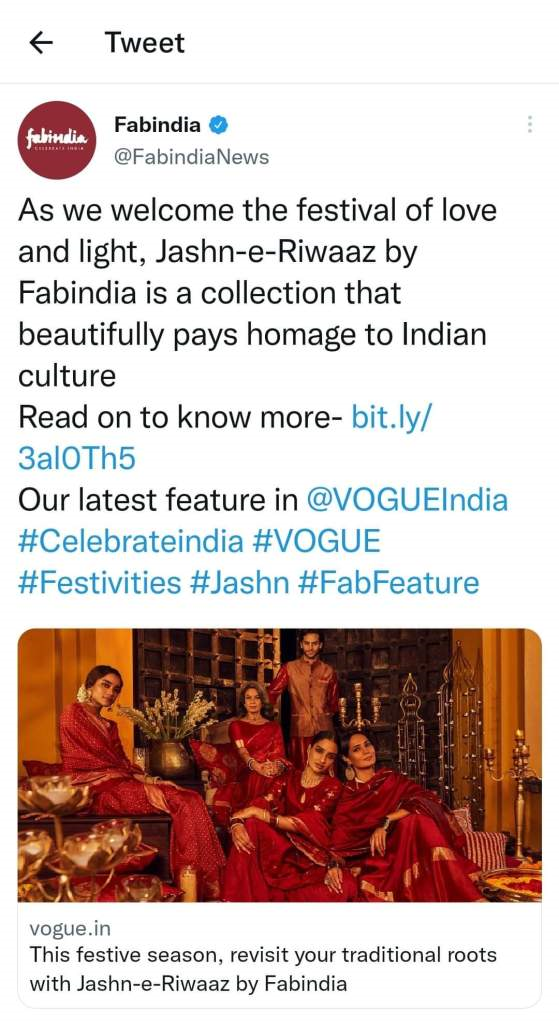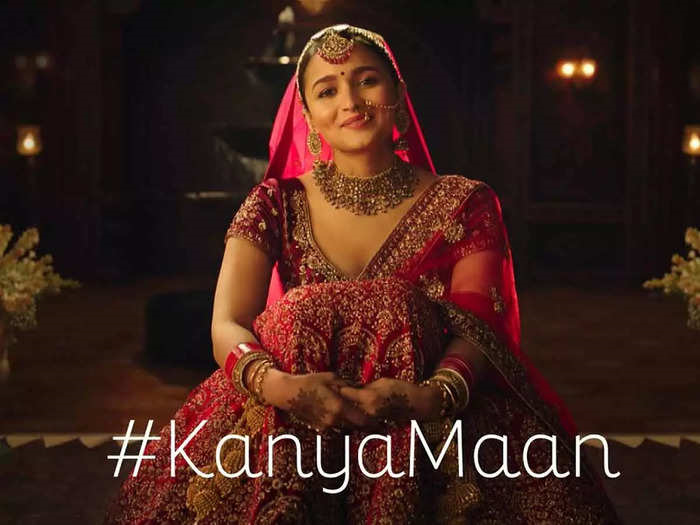FabIndia, an Indian retail business that sells clothing, furniture, fabrics, and cultural items manufactured by artisans in rural India, recently launched a campaign for Diwali, ‘Jashn-E-Riwaaz’ which was not well-received amongst the masses (read ‘the right-wing’), with calls to boycott the brand and its offering. This incident surely reminds us of the controversy around Tanishq’s ‘EKATVAM’ ad and Manyavar’s ‘Kanyamaan’ ad, so is there a connection between the three? Keep reading to find out.

It should come as no surprise that the ‘Boycott culture’ or the ‘Cancel culture’ surged in 2020, a year many of us hoped had been canceled. The influence and reach of cancel culture are no longer limited to celebrities; it has moved to brands and their internet presence as well. Brands are increasingly being held responsible for their impact on the environment, society, and culture. Consumers now have the tools and resources to express themselves and be heard as a result of globalization, social media domination, and digitalization.
Furthermore, the ascension of increasingly culturally sensitive Millennials and Generation Z into positions of economic power, as well as the widening of the political divide, has laid the groundwork for cancel culture to flourish. You can see this in action by looking at subjects like #Metoo and #BlackLivesMatter. The global rise of cancel culture has also pushed Indians to embrace the ‘Trend.’ When Sushant Singh Rajput, a Bollywood actor, committed suicide in the year 2020, it was assumed that several prominent personalities from the industry were directly or indirectly involved in the process. This sparked outrage, and the hashtag #BoycottBollywood began to trend on every social media platform. Since then, the boycott hashtag has been a common sight in the country.
India is a country with several religions and beliefs, which often leads to disagreements among the people. The country’s current political situation has also functioned as a catalyst for rising tensions among the populace. The religious angle is the parallel between the outcry over Manyavar, Tanishq, and the FabIndia commercials.
Although it appears that there may be some rationality beneath the facade, this is rarely the case. Boycotts begin with a few influential people raising concerns about certain brands, and then a large number of people mindlessly follow their lead. People rarely take the time to examine or analyze the situation before jumping on board. This frequently leads to the demise of a well-intentioned effort.

Although, ironically, a #Boycott frequently produces positive outcomes for the brand. The boycott trend, for example, is well visible in the marketing language of ‘any publicity is good publicity.’ For instance, the series ‘Mirzapur’ was boycotted by a large portion of the society after the lead actor made some anti-CAA remarks, but in reality, it became the most-watched series on Amazon Prime and broke several records.
Although society is divided on this issue, the cancel culture does not appear to be fading anytime soon. A significant number of individuals continue to hunt down brands, while others appear to think it is all meaningless and clout chasing. Whatever side you take, we hope you make an educated decision. In terms of digital marketing, it’s always a good idea to assess your campaigns and strive to prevent such conflicts as much as possible.
